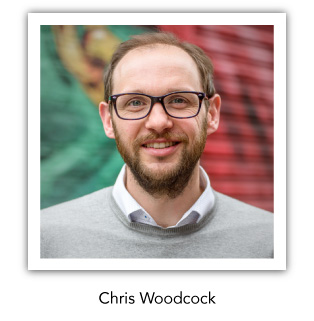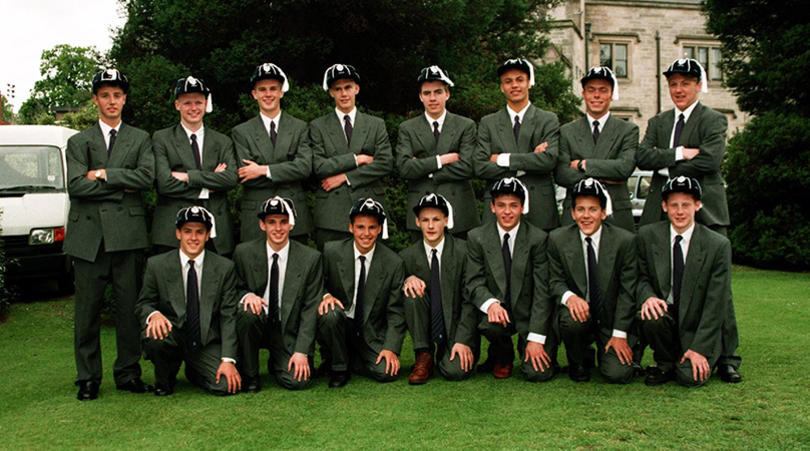Share post

I’ll be helping to evolve Essentia’s behavioral analytics and the depth of the consultancy services offered to our fund management clients. It’s an exciting time: there’s a wave of new interest in asset management fintech and AI for portfolio managers. Essentia is at the center of that and doing some pioneering work in combining technology and cognitive science to improve investment decision-making.
Your path to investment management fintech has been more varied than most. You started out as a professional football (soccer) player?
Yes, I was mad about football as a kid and then, aged 14, was selected to be part of the FA National School – joining the residential programme at Lilleshall Hall where I lived and trained for two years. In my cohort were people like Michael Owen and Wes Brown. After that, I played professionally for Newcastle United until I was about 20. Unfortunately, I got injured and hadn’t recovered by the time they came to review my contract. The new manager, Ruud Gullit, had never seen me play and I wasn’t offered a new one.
It was obviously a huge disappointment but I took some time to re-evaluate and set my focus on going to university. I’d kept up my education at night school whilst playing for Newcastle. I completed my studies and was offered a place at Magdalen College, Oxford, studying Maths and Computer Science.

The FA’s National school graduates with their international caps, at the Lilleshall Hall National Sports Centre. Featuring Michael Owen (front row, far left), Chris Woodcock (front, 2nd from left), Jon Harley (front, 6th from left), Michael Ball (back row, 2nd from left), Wes Brown (back, 6th from left).
From Newcastle United to Oxford University. That’s a big transition.
It was – 18 months earlier going to any university has been a pipe dream so getting into Oxford was a huge moment for me. A kind of motto at Lilleshall was Excellence in All Things; it really helped me think about life outside football and gave me a focus on doing my best, whatever I tried.
I then did a Masters in Bioinformatics at Imperial College, including some very interesting work around decoding the human genome. A PhD was on the cards but, whilst I loved the learning aspects of research, I wanted to work in a more dynamic and applied field. I did the graduate milkround and got a job in the City of London with GAM.
Tell us about your time at GAM. What did you do there?
I started on their fund of funds team, analysing equity hedge funds, predominantly. This was 2006 and a time when hedge fund performance was better but also more opaque. As a result, a good fund of funds product could add a lot of value for its investors, despite the fee structure.
GAM had really pioneered the fund of funds discipline and I learned a huge amount about the mechanics of investment performance. We had a very strong due diligence process and I got to know many of the leading managers at the time – it was fascinating and a lot of fun.
When the low return environment post the 2008 crisis made it difficult to give performance back to clients, I got deeper into the single manager world, leaving the fund of funds business to become a technology analyst for a long/short hedge fund run by GAM Investment Management.
It was in that role that I was first exposed to Essentia Analytics. As tech stock-pickers we were naturally interested in how we could use technology to gain a competitive advantage in our own work, and so we became Essentia clients. I’m an example of “I liked it so much I [joined] the company” – like Victor Kiam, but with less shaving.
In your manager selection days, to what extent did your science and maths background affect the way you assessed hedge fund managers?
I have a natural leaning toward using data and taking a quant approach and I was always looking for a robust, repeatable process. That said, I became aware that active equity fund management is a very discretionary space; some managers have a very strict process with limited volatility; others are stock pickers who allow for more creativity and intuition in their approach. I loved talking to the managers and working out how they did it. That combination of process and individual flair is what makes active management such an interesting field – not that dissimilar to analysing professional football players.
Were you aware of behavioral finance and its impact on the managers you were talking to?
Yes. In fact, the first thing my boss gave me to read when I joined GAM was The 7 Deadly Sins of Fund Management – the 2005 research paper by James Montier, then an analyst at Dresdner Kleinwort Wasserstein. Studying for the CFA, there was also a big component dedicated to behavioral economics, which drew on the academic literature about why fund managers were struggling to outperform and the cognitive biases they were prey to. This perspective was confirmed to me by the tendency for some of the managers we interviewed to focus on the performance outcome – especially in good times – rather than why it was good, or whether it was a good process. In this context, I could understand why some people were attracted to more systematic funds.
There’s a lot of talk in the media these days about the inevitable decline of the human fund manager. What’s your view?
The shift to passive and pressure on fees obviously creates a tough environment for active managers. Clients are also becoming more sophisticated in their demands for transparency and detail about what they’re buying.
Some active managers will probably fall by the wayside, but for those willing to respond and iterate the way they do things, I think this is an exciting time. Thanks to companies like Essentia, the last few years have seen the emergence of new types of data and insight about investment decision-making and, with that, new sources of performance alpha.
These things take time to percolate through, but I predict a future active management industry that’s fitter and better equipped to exploit the very real investment opportunities created by the shift of money towards passive strategies. In this context, the kind of interest we’ve seen in new active investor events like Behavioral Alpha is encouraging.
More broadly, active management brings huge societal value through capital allocation and by holding corporate management teams to account – something passive and systematic cannot replicate. It is in everyone’s interest to have a thriving active management industry.
What first attracted you to Essentia?
In my experience as a buy-side tech analyst, I know that software is always better when it’s built by people from the industry. When I first saw Essentia’s behavioral data and analysis, what was evident was the clear domain expertise of the team who had put it together.

I’m also very impressed at the effectiveness of Essentia’s behavioral nudges in helping managers to make better investment decisions. Loss aversion is a huge behavioral bias, so being able to use technology to intelligently and easily mitigate it is an open goal.
How will your experience of being a stock-picker help at Essentia?
I think it goes back to what I was saying about software: the best products, the ones that truly delight their customers, are those that are developed by people who have sat in the seat. I think that knowledge, that empathy, will be a great help at Essentia. I already felt it in the output I received from them as a client and that’s what I’ll be using my experience to try to build on.
Finally, when you’re not at Essentia helping to improve the way investors make decisions, where will we find you?
In Canada, and up a mountain! I was never allowed to ski when playing football, but when I started I found I had a great love of being outdoors and in the mountains. I took a 12 month sabbatical in 2011 and embarked on training as a mountain guide. Since then I have been spending four weeks every year in the mountains, getting more guide experience and training. It’s scary sometimes, but also exhilarating. Route planning and understanding things like avalanche risk are surprisingly technical.
Thanks, Chris. The Essentia team is very pleased to have you aboard!



